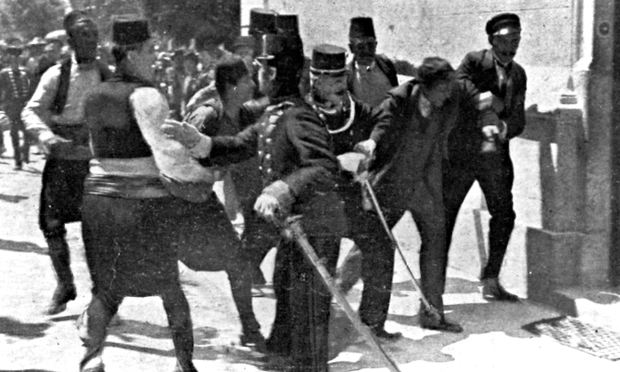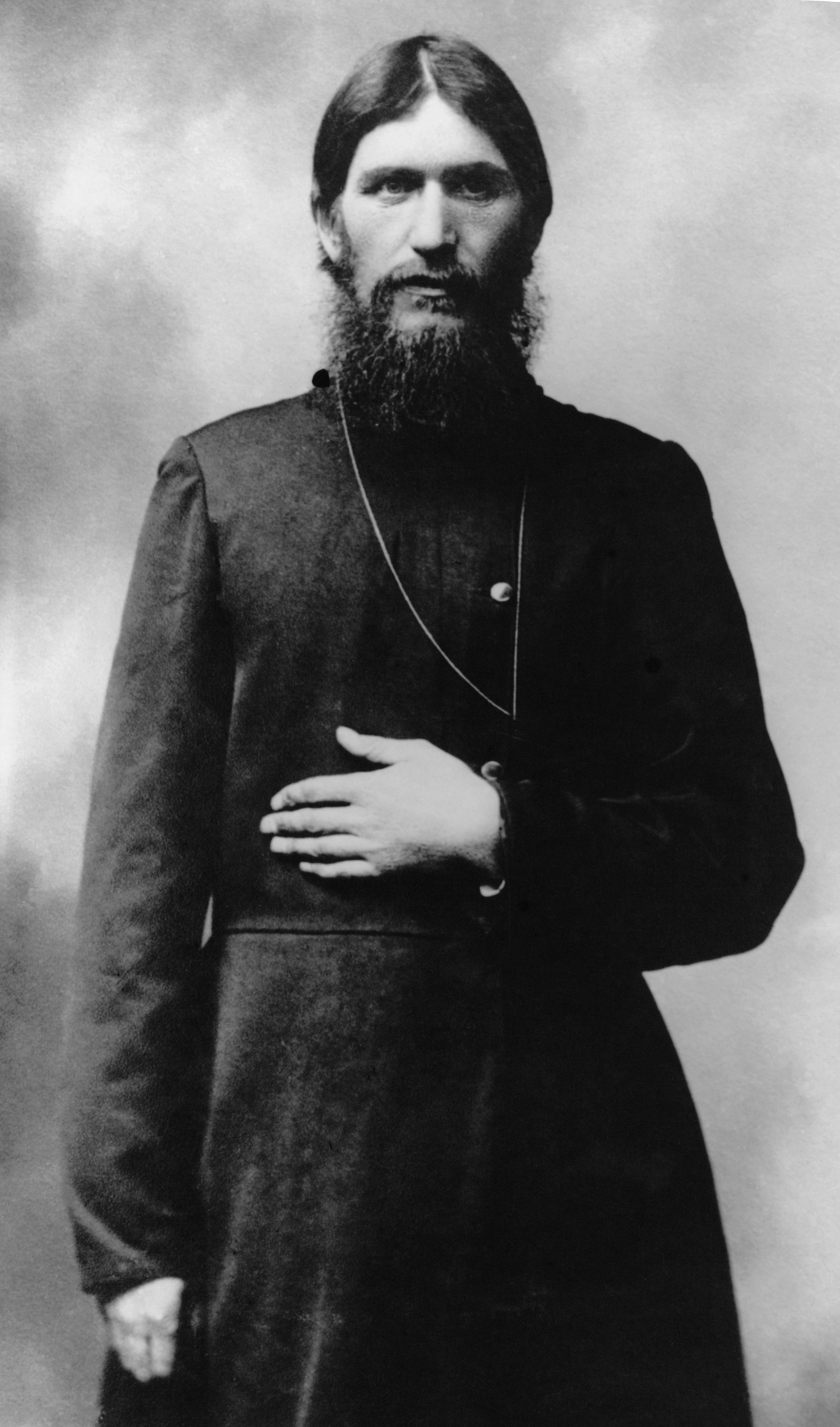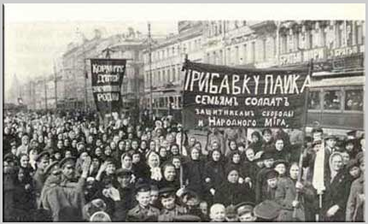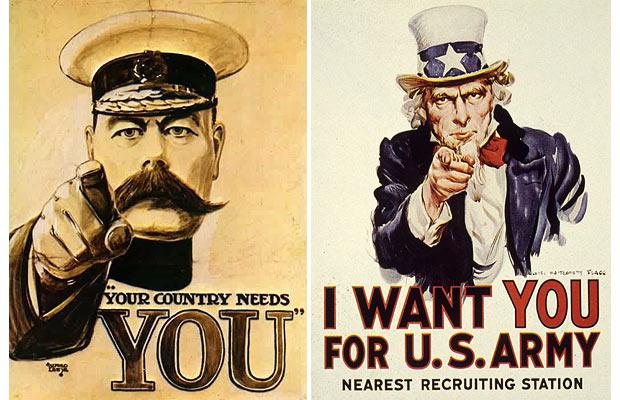lunes, 19 de octubre de 2015
domingo, 18 de octubre de 2015
Propaganda of WWI
Propaganda was a way to control public opinion, with this it was promote the idea about the war. The main idea was to get the viewer to stop, read and act according to the propaganda presented. It was to communicate the society, the message each one of the wanted to speak of about. It was a successful idea since the government only gave the people the good information, like the ones who say that the first impression is good, this was part of it. Most of this propaganda is better known to manipulate society´s mind because it practically had the control of their thoughts and points of view. The content of the propaganda's was for making benefit of the government and things such as; conserving food, unification of the nation, etc.
Social Impact of the War- Women
World War I was one of the most destructive wars ofEurope. Not only the weapons were the ones who made the consequences of WWI but society was as well included too. One of this social impacts was the changing roles for women because before women were seen as a division of labor, a domestic female. They could not work or anything, they had to stay at home because that was the role indicated for them. As well as the government increased in its power since having the control of all U.S economy is something big, just as Bernand Baruch. Because like anyone who has power, budgets and benefits are only for the person but never for the country.
The Assassination of Archduke Franz Ferdinand

Archduke Franz Ferdinand
- On March 28 1914, Archduke Franz Ferdinand and his wife Sophie were visiting Sarajevo. While the Archduke and his wife were visiting Sarajevo, there was a plan to assassinate them. The group that was planning they called themselves the "Young Bosnian's". The initial plan to kill the archduke could not be completed because the assassin assigned to kill him did not do his job correctly. Therefore, he was captured.

Conspirator, Gavrilo Princip
- Due to a mistake made by the people planing the Archduke's route, he drove near Gavrilo Princip. Gavrilo was a conspirator, who after the failed attempt at murdering Franz Ferdinand, sat down to eat a sandwich in a nearby cafe. When he see's the Archduke's and Sophies car he walks over to them. The drivers, when realized they made a mistake try to back up but, they only made things worse. Gavrilo was then able to approach the car and shoot Archduke Franz Ferdinand and Sophie.
- Gavrilo Princip then tried to kill himself but, failed to do so as his gun was taken away from him by bystanders. While he was being arrested, The Archduke and Sophie died of the gunshot wounds.
- The death of Franz Ferdinand is very relevant because he was the heir to the Austrian-Hungarian Empire. He was the nephew of Franz Joseph, the ruler of Austria-Hungary. His assassination was the trigger of WWI.

Gavrilo Princip being arrested after the assassination
The Schlieffen Plan
The Schlieffen Plan

Germany had been preparing for war long before 1914. In fact, Germany had started drawing up a plan for war - the Schlieffen Plan - in 1897. It took nine years to finalize, but it was based on the theory that Germany would be at war with France and Russia at the same time. It did not prepare for many of the events that occured in July and August 1914. It was based on the belief that, if the country went to war, Germany would be faced with a war on two fronts with France and Russia.
The plan assumed that France was weak and could be beaten quickly, and that Russia was much stronger, but would take longer to mobilize its army.
The plan began to go wrong on 30 July 1914, when Russia mobilized its army, but France did not. Germany was forced to invent a pretext to declare war on France (3 August 1914).
Things got worse when Britain declared war on Germany on 4 August 1914 because, in a Treaty of 1839, Britain had promised to defend Belgium.
Origin of the Name

This was the first “big” European war after Napoleon. Great did not only connotes the great scale of the war, nor the enormous number of men sent and lost. It also was called the Great War, because they thought this was the ultimate war. Before Armageddon or the Biblical battle of Good and Evil, since they thought that the evil militarism had taken control of Germany. This is not to diminish the indeed cruel number of deaths.
Terms to Know
- Nationalism: The unique cultural identity of a people based on common language, religion, and national symbols.
- Militarism: Reliance on military strength.
- Imperialism: The extension of a nation´s power over other lands.
- Alliance System: Is a formal agreement or treaty between two or more nations to cooperate for specific purposes.
- Conscription: Military Draft
- Trenches: A long, narrow excavation in the ground, the earth from which is thrown up in front to serve as a shelter from enemy fire or attack.
- War of Attrition: A war based on wearing the other side down by constant attacks and heavy losses, such as.
- Soviets: A Russian council composed of representatives from the workers and soldiers.
- War Communism: In World War I Russian, government control of banks and most industries, the seizing of grain from peasants, and the centralization of state administration under Communist control.
- Reparations: Payment made to the victors by the vanquished to cover the costs of a war.
- Mandate: A nation governed by another nation on behalf of the League of Nations.
- Total War: A war that involves the complete mobilization of resources and people, affecting the lives of all citizens in the warring countries, even those remote from battlefields.
- Armistice: A truce or agreement to end fighting.
- Propaganda: Ideas spread to influence public opinion for or against a cause.
- The Black Hand: Black Hand, a Serbian terrorist organization that wanted Bosnia to be free of Austria-Hungary and to become part of a large Serbian kingdom.Planned Economies: An economic system directed by the government agencies.
World War One- Trenches
Important Battles
Battle of Verdun

The Battle of Verdun is considered the greatest and lengthiest in world history. Never before or since has there been such a lengthy battle, involving so many men, situated on such a tiny piece of land. The battle, which lasted from 21 February 1916 until 19 December 1916 caused over an estimated 700,000 casualties (dead, wounded and missing). The battlefield was not even a square ten kilometers. From a strategic point of view there can be no justification for these atrocious losses. The battle degenerated into a matter of prestige of two nations literally for the sake of fighting.
Battle of Somme

The Battle of the Somme, also known as the Somme Offensive, was another of the largest battles of the First World War. Fought between July 1 and November 1, 1918 near the Somme River in France, it was also one of the bloodiest military battles in history. On the first day alone, the British suffered more than 57,000 casualties, and by the end of the campaign the Allies and Central Powers would lose more than 1.5 million men.
Battle Of Ypres

The First Battle of Ypres (19 October – 22 November) was a First World War battle fought around Ypres, in western Belgium during October and November 1914. The battle took place as part of the First Battle of Flanders (French: Première Bataille des Flandres German: Erste Flandernschlacht), in which German, French, Belgian and British armies fought from Arras in France to Nieuport on the Belgian coast, from 10 October to mid-November. The battles at Ypres began at the end of the Race to the Sea which involved attempts by the German and Franco-British armies to advance past the northern flank of their opponents. North of Ypres the fighting continued in the Battle of the Yser (16–31 October), fought between the German 4th Army and a largely Belgian force.
USA Enters the Great War
USA Enters the Great War
In 1915, the British passenger liner the Lusitania was sunk by a German submarine, killing 128 Americans and further heightening tensions. As a response to the murdering of those innocent Americans, in 1917, the U.S. enters the war. Many Americans did not want their country to get in this tension, but instead to remain neutral.
-Woodrow Wilson was indignant with the German Empire’s policy towards ships. They would sink any ship, but they would alert that ship and give a chance of saving their lives. This horrible policy was not respected and they sank all ships.
-He also did not believed that a nation to swore to protect human rights overseas could commit such atrocities.
-He firmly believed that their nation would not be involucrated on this war for revenge, but to protect human rights.
The Bolsheviks
The Rise of Lenin
- The Bolsheviks began as a small faction of a Marxist party called the Russian Social Democrats. They were lead by the great Vladimir Ilyich Ulianov, better known to the world as V.I.Lenin. The Bolsheviks became a party dedicated to violence and chaos. Lenin believed that the only thing that could destroy a capitalist system was violence. A ”vanguard” of activists, must form a small party of well disciplined professional revolutionaries to accomplish the task.

Vladimir Ilyich Ulianov
- In April 1917, German Military leaders, hoping to create disorder in Russia, shipped Lenin back to Russia. Lenin and his associates were in a sealed train to prevent their ideas from infecting Germany. A new stage was opened when Lenin arrived to Russia. He said that soldiers, workers, and peasants were instruments for power. He believed that the Bolsheviks should gain control of these group in order to make the best provisional government. At the end the Bolsheviks promised the distribution of land, transfer of factories and industries, and the transfer of government power from the provisional government to the soviets.Everything summarized in three slogans, ”Peace, Land, and Bread”.

- The number of party members had grown from 50,000 to 240,000- During the night of November 6, Bolshevik forces seized the Winter Palace, the seat of the provisional government, the government quickly collapsed with little of blood spilled. Outwardly Lenin turned over the power of the provisional government to the Congress of Soviets. On March 3, 1918, Lenin signed the Treaty of BrestLitovsk with Germany and gave up eastern Poland, Ukraine, Finland, and the Baltic provinces. The country soon sank into civil war.
- The Czar, Anti Leninist socialist, and The Allies sent thousands of troops to various parts of Russia in the hope of bringing Russia back to war. Attacks also came from the Ukranians in the southeast and from the Baltic regions. The Red army was a well disciplined fighting force, due to the organizational genius Leon Trotsky. Furthermre the disunity of the anti communist forces weakened their efforts. By 1921, The Communists were in total command of Russia. In the course of the civil war, The Communist Regime had transformed Russia into a centralized state dominated by a single party.

Russian Revolution
Russian Revolution: Background and More

Background to Revolution
- During WWI, Russia was unprepared both militarily and technologically. They did not have a capable military leader. The Russian industry was unable to produce weapons, meaning that the Russian soldiers were sent to war weaponless. They trained using broomsticks and they they were sent to the front with the order to pick up a rifle from a fallen comrade. The Russians suffered a great deal of losses. In two years, between 1914 and 1916, they lost over two million soldiers. At lest another four to six million were wounded or captured by the opposing side. By the year 1917, the Russians were losing their will to fight.
Beginnings of Upheaval

Czar Nicholas II
- Czar Nicholas II was an autocratic ruler who relied on the army and bureaucracy to hold the government. Czar Nicholas II, although he lacked training, took charge of the armed forces. He was cut-off from events by his German-born wife, Alexandra. She was a stubborn women who was under the influence of Grigori Rasputin, a Siberian peasant who said he was a holy man. She believed he was a holy man because he could stop the bleeding of her son Alexis, who suffered from Hemophilia (the deficiency in the ability of the blood to clot).

Grigori Rasputin, Alexandra's Holy Man
- While Nicholas II was at the front, Alexandra had to make all of the important decisions. Alexandra never made said decisions without consulting Rasputin first. He had a great influence of the throne and he did not hesitate to try and interfere in government affairs. As the leadership dealt with military and economic problems, the Russian people became upset with the Czarist government. They felt a need to try and save the situation.
- They began by killing Rasputin in December 1916. he was not an easy man to kill because he had a great deal of physical strength. Rasputin was shot three times and then tied up and thrown into the Neva river, where he drowned. Nevertheless, before he drowned he managed to untie the knots. Unfortunately, his killing was too late to save the monarchy.
The March Revolution
- In March 1917, working-class women started a series of strikes in the capital of Petrograd. A few weeks before this happened, the government started rationing the bread. this was because the prices of bread began to skyrocket. The women that were standing in line were factory workers who worked 12-hours a day. The police warned the government:
"Mothers of families, exhausted by endless standing in line at stores,
distraught over their half-starving and sick children, are today perhaps
closer to revolution than the liberal opposition leaders and of course they
are a great deal more dangerous because they are the combustible material
for which only a single spark is needed to burst into flame."
- On March 8, at least 10,000 women marched. Demanding "Peace and Bread" and "Down with Autocracy". The marchers were soon joined by more workers. The strike shut down all of the factories on March 10, causing Alexandra to contact Nicholas II.
- Nicholas ordered the soldiers to stop the strikes and shoot them if it was necessary. A large number of soldiers refused to shoot at the crowds and joined them instead.
- The Duma, which the czar tried to get rid of, established the provisional government who urged Czar Nicholas II to step down. Seeing as he no longer had the support of the army or the aristocrats, Nicholas II stepped down on March 15, ending the 300-year-old Romanov dynasty.
- Alexander Kerensky, the provisional government head, decided to carry on the war to preserve Russia's honor. This decision did not satisfy the workers or the peasants. They just wanted the war to end.

sábado, 17 de octubre de 2015
War of Attrition
World
war one was named a war of attrition since it was a war in which each side
tried to bring down the other by constant attacks. Therefore they had to
develop new weapons and strategies in order to bring down the enemy. Since both
sides were constantly attacking therefore in many battles fought in world war
one had no clear winner. However we know that the most affected country at the
end was Germany. Their imperialist ideas lead them to their own defeat.
viernes, 16 de octubre de 2015
Weapons
During World War I the different military systems were having a competition. Each one of the great empires was trying to destroy the other. The alliances helped to provide fear among those small countries who believed they could fight against them. The main goal was to show power and kill all members of the rival empire. All of the mentioned above lead to the development of new weapons who caused millions of deaths at World War I.
*Machine guns: were guns who allowed a single man to kill hundred of men in seconds.
*Airplanes: they were first used for spying but later on they were used to deliver bombs and fight the enemy aircraft in the air.
*Poisonous gas: another new weapons formed at that time were the poisonous gases. The Germans were the first ones to use them and two types of gases were formed by them:
a) chlorine gas: caused blindness,choking,vomiting,torn lungs and death
b)Mustard gas: mostly deadly,caused skin blisters,sore eyes, vomiting, internal and external bleeding causing a long slow death.
*submarines: were used to transport supplies to countries at war. The German u–boats destroyed warships, supply ships, commercial and passenger ships. Causing another series of events.
*Tanks: were able to invade the trenches of the enemy, they would kill hundreds of soldiers with one single shot.
Key Personalities
Kaiser Whilhem: Emperor of Germany in World War 1. In 1890, he broke ties with Russia, which lead to strong consequences for Germany. Breaking ties with Russia lead to hate between the Germans with the French who were allied with the Russians and Great Britian. Since Germany had to split up and try to defeat them all they ended up losing. Kaiser was the one who pushed most of the Austrians for war and used Franz as his base. Kaiser main goal was to develop a great militaryy system therefore he could not agree with other rulers such as Franz Ferdinand.
Archduke Franz Ferdinand: An independent thinker who focused more on creating alliances than forming a great military system. He was the Archduke of Austria Hungary who got deceased by the black hand and Gavrilo Princip(Serbians). Due to his assassination the Austrian Hungarians found the perfect excuse to declare war on the Serbians. Then the alliances were formed and a whole of events went by. He was considered as probably the only person who might have stopped the war unfortunately, he was killed along with his family.
Main Causes of WWI
M.A.N.I.A.C.S caused WWI due to the following reasons:
*Militarism: militarism produced rivalry between the great empires. A competition was formed within all of the great empires because they wanted to show their power and strength. Showing their power and strength consisted of using their weapons and well build military systems.
*Alliances: The Triple Entente and The Triple alliance were the alliances formed throughout world war one. The Alliance within Germany, Austria Hungary and Italy caused France,Great Britain and Russia to unify. The more allies you had at that time the more powerful you became.
*Nationalism : liberals believed that if European states were organized along nation lines,states will work together and create a peaceful empire. However, nationalism builded a great ego in big empires.
*imperialism: Great empires instead of building nationalism they builded imperialism. They had the desire of expanding their territory and gaining more military power.
*Assasination of Franz Ferdinand: Ferdinand was killed along with his pregnant wife by Gravilo Princip. The Serbians were part of the Austrian Hungarian empire however, they wanted to get rid of the alliance and Bosnia to join them. The BLACK HAND was formed and killed Ferdinand which gave the perfect excuse to the Austrian Hungarians to attack the Serbians. Since the Russians defended the Serbians the Germans joined the Austrian Hungarians.
*wConflict in The Balkans Peninsula: the Balkans Peninsula had different religions and nationalities therefore, the Russians and Austrian Hungarians wanted to conquer them due to their imperialist ideas.
*Series of diplomatic failures:All of the mentioned above lead to a series of diplomatic failures which caused war. Ultimatum from Austria Hungarians fails to Serbia so Serbia were at war with the Austrian Hungarians. Russia and France mobilize against Germany because it was their common enemy also Germans were defending the Austrian Hungarians. Then Germany attacks french with Schlieffen plan through neutral Belgium and failed. England attacks the Germans because they had an alliance with Belgium and Belgium was being attacked by the Germans.
conclusion: due to alliances and common enemies the war was formed. Nationalism gave Great Britian advantage and imperialist ideas made the Germans produce great lose of soldiers. WWI was a war for ambitious empires like the Germans who tried to their "power."
Suscribirse a:
Entradas (Atom)















